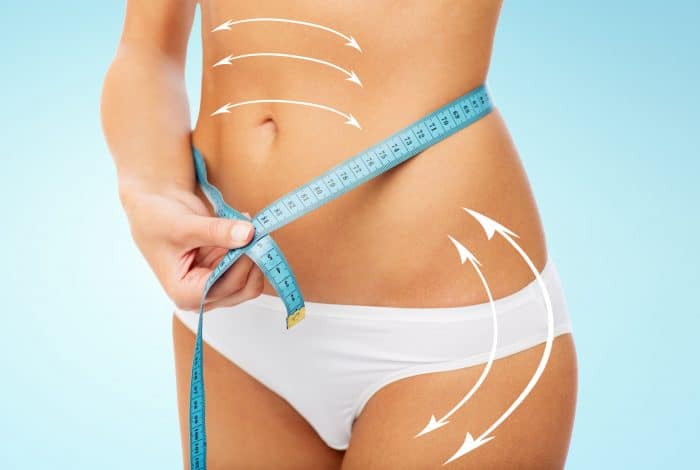Laser liposuction, also known as laser-assisted lipolysis, has gained significant popularity in recent years as a minimally invasive procedure for body contouring. This technique uses laser technology to break down fat cells, making them easier to remove from the body. As with any medical procedure, safety is a primary concern, leading many to ask: Is laser liposuction safe for everyone?
In this article, we will delve into the various factors that influence the safety of Laser liposuction in Dubai and identify who may be suitable candidates for this innovative treatment.
Understanding Laser Liposuction
Laser liposuction combines traditional liposuction techniques with laser technology to enhance fat removal and minimize recovery time. During the procedure, a laser fiber is inserted through a small incision, emitting energy that targets fat cells. The heat from the laser causes the fat cells to liquefy, allowing for easier extraction while simultaneously promoting skin tightening.
Unlike traditional liposuction, which requires larger incisions and general anesthesia, laser liposuction can often be performed under local anesthesia with smaller incisions. This aspect contributes to its appeal, as it typically results in less bruising and quicker recovery for patients.

Factors Affecting Safety
Overall Health
One of the most critical factors determining whether laser liposuction is safe for an individual is their overall health. Candidates should be in good physical condition without significant underlying health issues. Those with chronic conditions such as heart disease, diabetes, or respiratory issues may face higher risks during the procedure. A thorough consultation with a healthcare provider is essential to evaluate these risks.
Body Mass Index (BMI)
Body Mass Index (BMI) is another vital factor in assessing suitability for laser liposuction. Generally, individuals with a BMI of 30 or higher are not considered ideal candidates. This is because laser liposuction is most effective for individuals close to their ideal weight but struggling with localized fat deposits. Individuals with a higher BMI may benefit more from alternative weight loss methods before considering liposuction.
Skin Elasticity
The quality and elasticity of the skin also play a significant role in determining safety and effectiveness. Individuals with good skin elasticity are more likely to achieve optimal results, as the skin can retract after fat removal. Conversely, those with loose or sagging skin may not benefit from laser liposuction and could require additional procedures to address skin laxity.
Age
Age can influence the safety and outcomes of laser liposuction. While there is no strict age limit, younger individuals often have better skin elasticity and overall health. However, older individuals may still be suitable candidates if they are in good health and have realistic expectations. An experienced surgeon will assess these factors during the consultation.
Potential Risks and Complications
While laser liposuction is generally considered safe, it is essential to acknowledge the potential risks and complications associated with the procedure. These may include:
- Infection: Any surgical procedure carries a risk of infection. Following proper aftercare and maintaining a sterile environment can help mitigate this risk.
- Scarring: Although laser liposuction typically involves smaller incisions, scarring can still occur. The extent of scarring depends on individual healing responses and the skill of the surgeon.
- Uneven Results: In some cases, patients may experience uneven fat removal, leading to asymmetry. Choosing a qualified and experienced surgeon can help minimize this risk.
- Burns or Skin Damage: The laser energy used in the procedure can cause burns or damage to the surrounding skin if not administered correctly. Proper technique and equipment are crucial in preventing these complications.
Post-Procedure Care
After undergoing laser liposuction, patients must follow specific post-procedure care instructions to ensure safety and promote healing. Common recommendations include:
- Wearing Compression Garments: Compression garments help reduce swelling and support the healing process. They should be worn as directed by the surgeon.
- Avoiding Strenuous Activities: Patients should refrain from intense exercise and heavy lifting for several weeks following the procedure to allow the body to recover.
- Staying Hydrated: Drinking plenty of water aids in recovery and helps flush out toxins from the body.
- Attending Follow-Up Appointments: Regular follow-up visits with the surgeon are crucial for monitoring healing and addressing any concerns.
Who Should Avoid Laser Liposuction?
While laser liposuction is a safe option for many, certain individuals may not be ideal candidates. Those who should avoid the procedure include:
- Pregnant or Nursing Women: Hormonal changes during pregnancy and breastfeeding can impact healing and body changes. It is advisable to wait until after this period.
- Individuals with Certain Medical Conditions: As mentioned earlier, individuals with specific chronic conditions or those taking medications that affect healing should consult their healthcare provider before considering the procedure.
- Smokers: Smoking can impair healing and increase the risk of complications. Individuals are often advised to quit smoking for a period before and after the procedure.
Conclusion
In summary, laser liposuction can be a safe and effective option for body contouring for many individuals. However, it is not a one-size-fits-all solution. Factors such as overall health, BMI, skin elasticity, and age play significant roles in determining candidacy and safety.
Before undergoing laser liposuction, it is crucial to consult with a qualified and experienced healthcare professional who can assess individual circumstances and provide personalized recommendations. By understanding the factors that influence safety, potential candidates can make informed decisions about whether laser liposuction is the right choice for them.
Comments